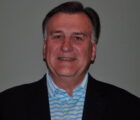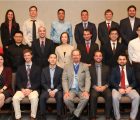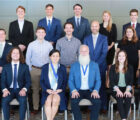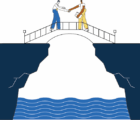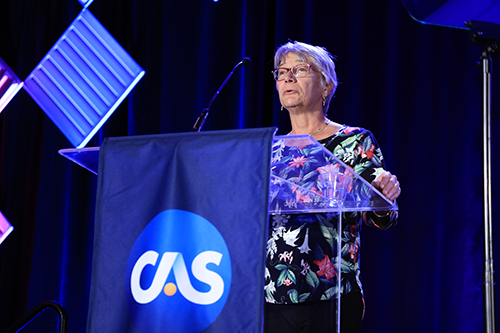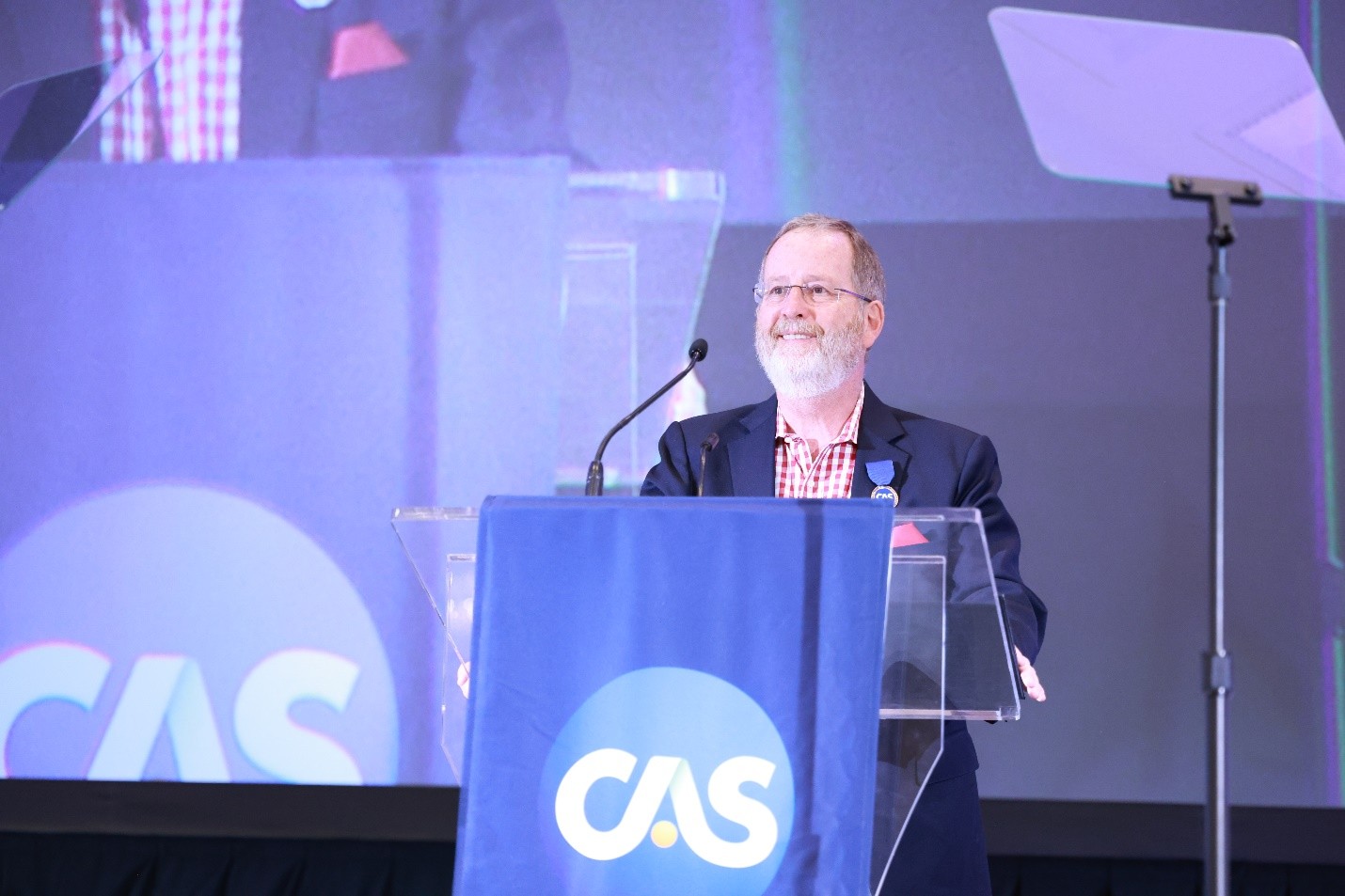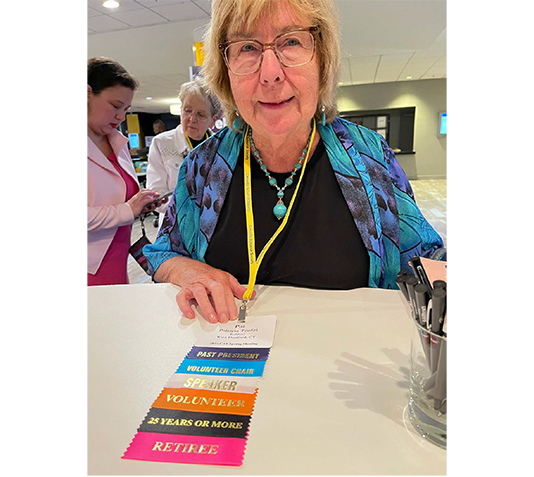
The following is an excerpt from Pat Teufel’s Address to New Members, given during the CAS Spring Meeting Business Session on Mary 6, 2024, in Atlanta.
I am deeply honored to have been asked to address you this morning … I sat in your seat as an Associate in 1975 and gained my Fellowship four years later in 1979 — before most of you were born and at a time when the actuarial exams were much easier.
I tried to recall who gave the Address to New Members at my Fellowship meeting. My mind drew a blank. I thought, must have been a typical actuarial speech — you know, the ones you fall asleep for? But I felt somewhat guilty; Why couldn’t I remember who gave the Address to New Members? And then it dawned on me. This tradition, having a past president address new members, only began in 1985. It’s relatively new in the span of our 100-year history. Whew! I was happy to hear that I had in fact passed the informal cognitive test in order to give this address.
… Why have an Address to New Members? I think that this is a way for the CAS to impart its culture and core values, in a personal way, as our organization grows larger and more diverse. It is also an opportunity for … me to share some of the lessons learned along the way … .
First, recognize that this is not the end, but a beginning. Leroy Simon, in his 1999 Address to New Members warned, “It is easier to become an actuary than to be one.” I’ve certainly found that to be true. In preparing for today’s remarks, I decided that I needed try something new; I embarked on the world of ChatGPT. I entered this thought: “Speech congratulating young professionals on the achievement of a professional milestone.” In less than a minute, I received a proposed address. I didn’t use that directly — it seemed a bit impersonal and I thought I could do better — but I did decide to incorporate some of the suggestions in my remarks today. We can use AI to our advantage — let’s understand the risks but embrace the opportunity.
In reaching this actuarial designation, you have demonstrated excellence in the analysis of numerical data and a mastery of the key elements of casualty actuarial science. You have a firm understanding of what it takes to be a professional. With this foundation, you’re now ready to turn things on their head and see them in a different light. Actuarial science continues to advance, and we must grow too. You have embarked on a lifetime of learning — from each other, from non-actuarial business colleagues, from family and friends. Some of this learning will be technical, although in areas not currently tested on the actuarial exams — perhaps nanotechnology, nutrition, behavioral science or weather. But the majority of your learning will likely fall in the area of “soft skills” — understanding how culture influences one’s view of reality, how to communicate complex actuarial concepts to non-actuaries, how to influence decisions.
With this foundation, you’re now ready to turn things on their head and see them in a different light. Actuarial science continues to advance, and we must grow too.
Second, expand your horizons and your experiences. Most of us spend the early days of our actuarial careers talking with other actuaries. Occasionally, we’ll share moments with our significant others, maybe even our children — but often just to negotiate schedules. Now is your time to expand your horizons and listen — truly listen. You’ll be amazed at the perspectives you can gain from underwriters, claims adjusters, accountants, lawyers, marketing professionals — yes, even family! These new perspectives will prepare you for broader roles within your company, but also for richer lives. Be open to new opportunities. Yes, it’s uncomfortable to venture into uncharted territory. “Will I be good enough?” “What if I fail?” Do it anyway! The rewards are plentiful, whether you succeed or bomb. Some of my richest learning experiences were those where I failed abysmally!
Third, time — there’s never enough. Learn to manage your time well, on things that are important to you. Focus on all aspects of your life — work, family, yourself. Balancing work and family commitments is an art, not a science. What works for me will not necessarily work for you. I urge you to make a conscious choice about the balance that you want in your life and what will work for you in achieving that balance.
In that balancing act, remember to pay it forward … Whatever our personal struggles, we have been blessed with keen minds, strong education, a lucrative profession, the support of families and the strength to persevere … There are myriad ways to pay it forward, through direct contributions to worthy causes, through mentoring and service activities, through service on any one of over 100 CAS committees and task forces, or just by being there — fully there — at the moment someone needs a shoulder to lean on.
Lastly, have fun along the way. If you are not happy doing what you’re currently doing, make a change. We spend too much of our lives at work to have it be doing something you hate! Even if it means branching out from actuarial, there are thousands of ways that you can use the skills you’ve gained in meaningful ways. Invest your time in something you really love! Take time to laugh with friends and colleagues. I firmly believe that life is a journey of finding ourselves — the best that we are. Many people cross our path in that journey. Treasure each and every person, each and every moment.
… Find as much joy in this profession as I have. Who knows, 50 years from now … perhaps it will be one of you who is tapped to give the Address to New Members! … .
Pat Teufel, FCAS, MAAA, CAS President in 2012 and as Chairperson of the CAS Board of Directors in 2013, has been a CAS volunteer for over 50 years. Now retired, she was a leading principal at KPMG and later an adjunct professor at University of Connecticut for more than 10 years.







